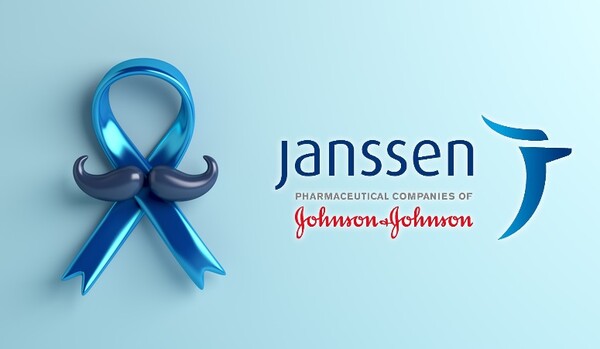Janssen, which will launch the first generic version of prostate cancer treatment Zytiga (abiraterone acetate) with insurance benefit, has introduced Akeega, a prostate cancer therapy combining the existing abiraterone and PARP inhibitor niraparib, in Korea.
On Monday, the Ministry of Food and Drug Safety (MFDS) approved Akeega as a combination therapy with prednisolone in treating adult patients who have not received chemotherapy after diagnosis of BRCA-mutated metastatic castration-resistant prostate cancer (mCRPC).

Given that Akeega won approval in Europe and the U.S. in April and August, its arrival in Korea marks a major global launch for the drug. The rapid approval has become possible by Korea's significant participation in the pivotal phase 3 MAGNITUDE study.
About 20 percent of mCRPC patients are known to have homologous recombination repair (HRR)-related gene mutations, including BRCA1/2. PARP inhibitors show therapeutic activity in these patients.
Janssen began the MAGNITUDE study with the hypothesis that combining PARP inhibitors with androgen receptor pathway targets could help treat unselected mCRPC patients.
MAGNITUDE evaluated niraparib plus abiraterone plus prednisone/prednisolone vs. conventional abiraterone plus prednisone/prednisolone (AAP) in previously untreated mCRPC patients with or without HRR-related gene mutations.
The study comprised 423 patients with HRR gene mutations (Cohort 1), including 225 (53.2 percent) who were BRCA mutation-positive.
The results showed that the niraparib + abiraterone + prednisone/prednisolone combination significantly improved radiographic progression-free survival (rPFS), the primary endpoint, in all HRR-positive patients compared to the control group. The hazard ratio (HR) was 0.73, marking a 27 percent reduction in disease progression and death risk.
However, the improvement was most pronounced in patients with BRCA1/2 mutations. With additional follow-up in the BRCA subgroup, the median rPFS was 16.6 months, compared to 10.9 months in the control group, reducing the risk of disease progression and death by 47 percent.
These primary efficacy results were supported by significantly prolonged time to symptomatic progression (TSP) and time to cytotoxic chemotherapy (TCC), both critical secondary endpoints, and a trend toward improved overall survival (OS). Safety profiles were consistent with what was previously known for each agent.
Meanwhile, Janssen, a traditional Korean prostate cancer treatment market powerhouse, has recently initiated a generational shift from Zytiga to Erleada (apalutamide). The move comes after Erleada won approval for treating metastatic hormone-sensitive prostate cancer (mHSPC).
However, before Janssen could complete the generational switch from Zytiga to Erleada, it faced challenges from a generic in the domestic market. Hanmi Pharm has won approval for Abiteron as the first generic for Zytiga and will release it next month. Abiteron has a reimbursement limit of 8,537 won ($6.36), half the price of Zytiga.
Industry executives watch with interest if Akeega's approval in Korea will provide Janssen with a new opportunity in the BRCA mutation-positive patient population and solidify its position as the dominant player in the prostate cancer market.

